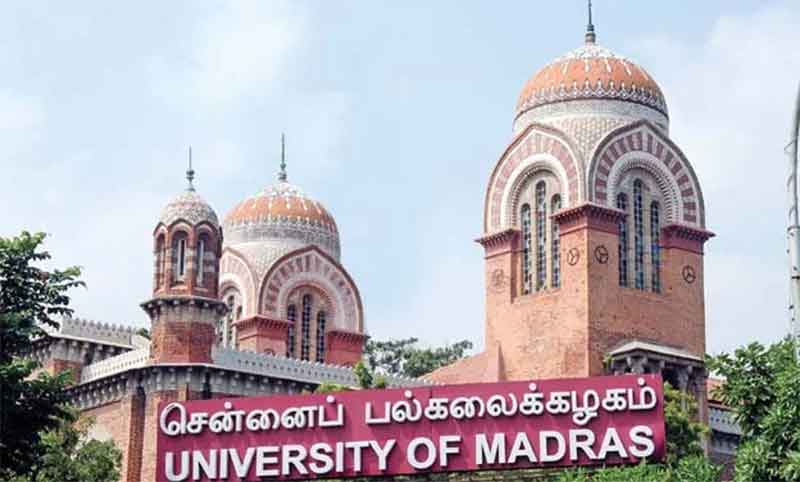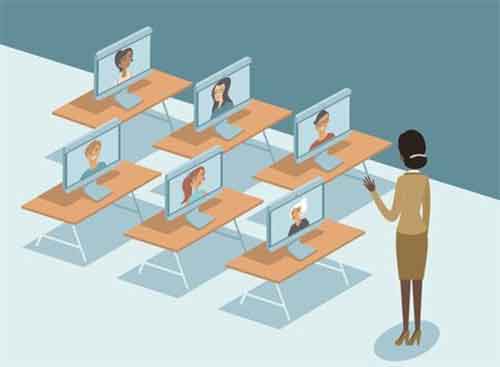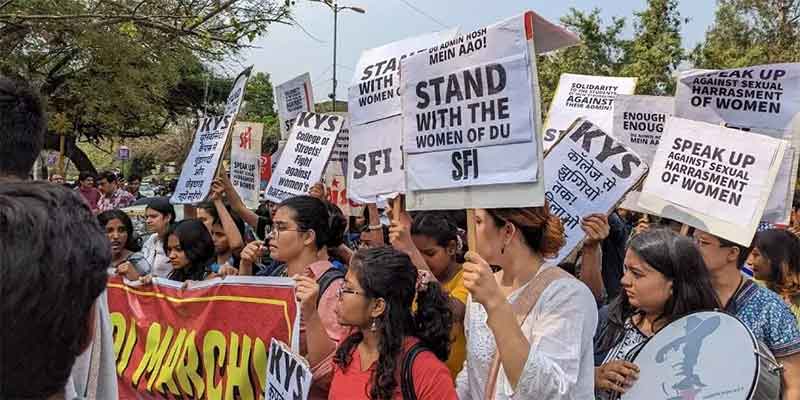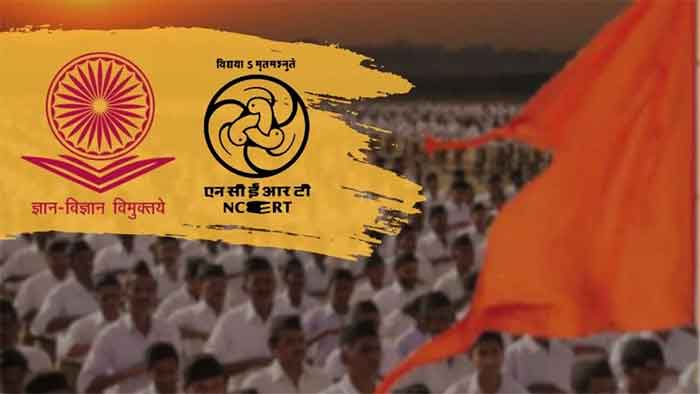
“Education is the most powerful weapon which you can use to change the world” (Nelson Mandela).
There are varied perspectives exist among the scholars with regard to the role of School as an agency of social change. For some, modern institutions like Schools and Colleges (by promoting secular and democratic thinking through critical pedagogy) could play progressive role in the hierarchical society like India. To be precise here, the purpose of critical pedagogy, is to create new knowledge and develop a sense of critical thinking among the students through the method of dialogue and discussion in the classrooms. The concept of critical pedagogy is systematically given by Brazilian educator Paulo Freire in his noted book, Pedagogy of Oppressed, 1970. For him, the purpose of education and teaching is to create critical thinking and questioning abilities among the students rather than preparing them for passing exams and securing good marks often through rote learning and memorizing. In other words, the students should not be merely passsive receiver of knowledge, rather they should be an active participants in the classroom learning. In short, school can be an agency of social change, if it provides space to students for critical thinking and questioning existing status quo and dominant societal norms prevalent in the hierarchical society like India.
For others, (especially left leaning scholars) have underlined that school as an institution can also be used as an ideological apparatus of State and the ruling elites to produce “cultural hegemony” (in Gamascian sense)in the civil society. To accomplish this task, the pedagogy and curriculum ,etc. are often taught in the schools in such way, so that it can reproduce and reinforce already existing inequality rather than work as an agency of social change. That is why, some have argued for an “alternative” model of schools ( especially for those who belong to the oppressed groups)which should provide space for articulating the genuine concern of children belonging to the subaltern masses. The educationist any Austrian philosopher like Ivan Illich in his noted book, Deschooling Society, 1971 has argued for deschooling and put forward the idea of alternative model for learning based on informal education and home schooling. His concept of deschooling could be noticed in remote areas and rural settings of India when the students coming from subaltern masses could not able to sustain their education for longer time in the school especially in English medium, due to high fee structure and socio-economic exploitations that exist in the institutions of learning. However, process of deschooling is also taking place due to rise of various other options of learning after the rise of online education in post-covid-19 in India and elsewhere. Therefore , process of deschooling is also increasing because of alternative choices of learning are now available to the students, as an American scholar John Holt has underlined.
As a teacher having experience more than five years , I would like to argue that if schools and colleges will seriously follow the idea of educationists and founding fathers of our nation like Babasaheb Ambedkar and Mahatma Gandhi’s conception of education and learning environment (envisioned during the freedom movements), it can be an agency of social change. In this respect, the role played by educationists and social reformers like Savitribai Phule and Pandita Ramabai in the 19th century of colonial India can be taken as a case in point. These Bahujan icons and feminists for the first time had opened the school for women and the lower caste in the colonial India. Besides opening the schools, they had also fought against the brahmanical patriarchy and evils of cates system deeply rooted in the society. In similar vein, Babasaheb saheb Ambedkar had also emphasized the role of education to bring out social change. His dream was that, every Schools and Colleges should work as an agency of social change.
Drawing the insights from Bahujan icons in field modern education and agenda of social reform, one could argue that the schools and teachers should be equipped with modern and scientific research in the field of education and training. Moreover, teaching methodology, pedagogy and curriculum should be conceptulised in such way, so that it can promote secular, democratic and pluralistic values among the students. More importantly, teaching community and academics of schools must be informed with democratic thinking and progressive values like equality, freedom, social justice and diversity, enshrined in our democratic constitution. The larger purpose of education should be based on moral values like empathy, kindness, compassion and truth, rather than guided by narrow views of primordial values such as caste and community locations, as also envisioned by the Bahujan icons. In short, the purpose of education should not be to prepare the youths for serving the agenda of markets and solely driven by material needs and career advancement, as advocated by the a ruling dispensation.
Having said that now let me underline here what Mahatma Gandhi has said about education and creative learning for children. For Gandhiji, education must be rooted in surroundings and local environment of children and according to the needs of society at large. For him, purpose of education should be, to development of all round personality of children. In other words, curriculum of schools ,pedagogy of learning and surrounding of students should be inter-connected. The school and classroom learning should provide academically conducive space for healthy development of child learning and according to their psychology. Put differently, the school, educators and members of academic community should be committed to provide “child centered” education , as underlined in 1986 educational policy and National Education Policy 2020. However, the larger agenda of social justice and social change is missing and not given primacy in the NEP -2020, rather more attention has been given to accessibility, affordability, equity and quality education to all children.
To note that the NCF (National Curriculum Framework, 2005) has also underlined that school, community and textbooks along with life of students must be interlinked to each other. In other words, life of students in schools , home, and community must be interconnected in learning process while keeping in mind child psychology. In doing so , textbooks and examination centric method of evaluation should not be used as a sole criterion to evaluate students academic abilities. To evaluate students academic performances and learning skills, the school, teaching community and pedagogy should be based on comprehensive and continuous evolution (CCE)policy which focuses on every day learning by involving students in the extra- curriculer , cultural activities and learning by doing method, as Gandhiji emphasized long ago while envisioning the idea of basic education in the late 1930s.
Now let me come to the recent academic discourse and views of scholars and educationists especially on how can develop enabling environment for effective learning skills among the students. In this respect, several articles have been so far written by sociologists and educationists with regard to how can promote culture of learning and quality education along with value education amongst students. Some sociologists have argued that socialization of child in family matter more than school and society. It should be noted that family is considered as primary agency of socialization and child learning. Most of times, students used to expend their times with members of family and their close relatives. Apart from family, other agencies of learning and socialization are peer groups, friends and society that also play vital role in learning of children. On the basis of my interactions with students in the classrooms, I have seen contesting views prevalent among the students especially when come to critical issues like reservations and social justice. However, it is beyond the scope of this essay to discuss these issues here.
To note that most important and secondary agency of learning take place when children come to school. Unlike traditional institutions of learning as said earlier, modern and democratic institutions like schools and colleges also play crucial role as far as educational , social, psychological and emotional development of children. The secular institutions like School needs to promote the democratic and inclusive thinking among the students with the help of critical pedagogy. However, the fact must be noted that all schools are not aim to promote critical thinking and scientific temper among the students. To note that the schools in modern times also work as ideological apparatus of State and reproduce the dominant ideology of the ruling establishments and maintain cultural hegemony in civil society, as hinted earlier. The Indian educational institutions are not exceptional in this regard.
In this essay, attempt is made to demonstrate how can school’s curriculum and pedagogy should be conceptualized, so that it can provide an enabling environment to children and their academic growth. Let me share here a few words about the purpose and real goal of education. As a educator, and associated with teaching community, for me, the purpose of education is not to get good marks in exams and achieve personal success and career advancement. The real aim of education, as reminded by the great educationists to bring out social change in society and fight against the socio-economic problems witnessed by larger people of our country. Besides, as I said in my earlier article, the purpose of democratic education( which see education as public goods that must benefit to the least advantaged groups) is to promote and cherish the democratic and secular and scientific temper among the students. While doing so, the larger goal of education has to be foster communal harmony and cultural of tolerance, moral values and peace in society. One can not deny that these values are under the threat now. To cultivate all the progressive and democratic thinking among the students, the school could play vital role more than the primary agencies of traditional learning such as family and peer groups. The aim of teaching and learning should not only be confined to how can secure “good marks” in exams but foster and inculcate the above progressive values among the students.
To conclude this essay, I would like to state that besides family, and other agencies of learning, the schools are most important institutions of learning for children. In this process of learning, the teachers and academic members of schools would have to play socially and educationally vital role with regard to promoting educational and moral values among students . Moreover, the schools should also provide enabling conditions of learning rather than creating social and psychological constraints , as generally seen in the those schools, located in rural settings. However , schools which are located in urban areas are not exception in this regard.
Let me end here by saying that in today’s globalized and competitive world, we as member of academic community and associated with teaching fraternity should act as an agent of social change by fostering secular and democratic thinking among the students in schools and in the larger Indian society, as enshrined in our living Constitution. It could be only possible when the academic fraternity, besides providing enabling conditions of learning to children in the schools, must follow seriously progressive ideas especially on education and social change put forward by the great leaders of our nation like Babasaheb Ambedkar, Bahujan feminist icons and Gandhiji during the course of our freedom movements.
Dr. Badre Alam khan has just completed his Doctoral Degree from Department of Political science, University of Delhi.
















































